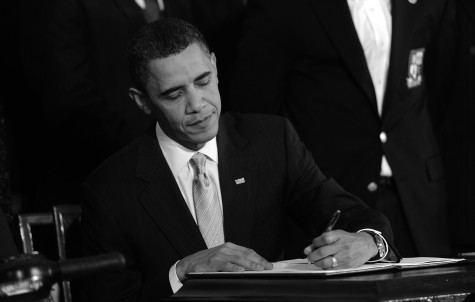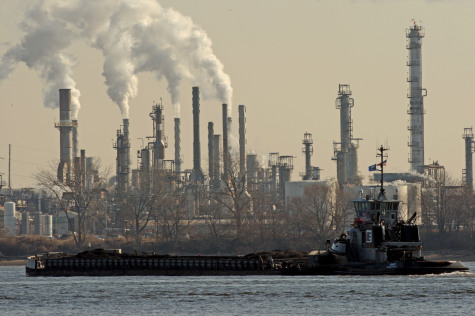‘Charlie Hebdo’: Not a black and white issue
“I do not agree with what you have to say, but I’ll defend to the death your right to say it.”
Given the recent tragedy in France, this well-known quote by the philosopher Voltaire has become a cornerstone of the argument concerning the attack on French satirical magazine Charlie Hebdo.
This attack is a tragedy, and it has rightly been condemned by Muslims and non-Muslims alike worldwide. No matter how it’s stated, the killing of 12 people is simply unacceptable in a civilized society. However, when one delves deeper into the history of this magazine and what it has published in the past, the matter of the magazine itself suddenly becomes much less black and white.
In Islam, the depiction of the Prophet Muhammad is strictly forbidden. Therefore, when Charlie Hebdo published a cover in the fall of 2011 depicting the prophet as the issue’s “guest editor,” extremists responded by burning down Charlie Hebdo’s offices. However, the magazine soon replied by furnishing the cover of their next issue with an image of a Muslim man (possibly meant to be Muhammad) kissing the magazine’s editor, known as “Charb,” on the mouth, prompting even more controversy. In September 2012, the magazine published more cartoons of the prophet, several of them depicting him naked in very suggestive poses, drawing criticism from both Muslims and non-Muslims around the world. In addition to these, the magazine has targeted figures such as Pope Benedict XVI, Osama bin Laden and others in highly controversial images on their covers as well.
As a practicing Muslim, when I looked at some of the images Charlie Hebdo has published in the past, I was shocked. Frankly, not only are many of the images crude and unsavory, but they are also extremely disrespectful to the 1.6 billion or so Muslims worldwide who have never entertained a thought of committing such unspeakable acts of violence. The images, to put it bluntly, are offensive, distasteful, lined with a thin layer of bigotry and, in my opinion, crossing the line between entertainment and insult.
While many have defended the magazine by calling it satire, this is slightly untrue. Satire is defined by literary devices.net as “a technique employed by writers to expose and criticize foolishness and/or corruption by an individual or society.” That does not seem like the material Charlie Hebdo publishes. It seems that they aim to publish sensational and controversial material simply to offend people and to provoke a reaction all in the name of a good laugh, not to try and solve any social or political world issues.
So, did those 12 civilians, particularly the journalists, deserve to be killed? Absolutely not. This attack was an utter disgrace, and should be condemned by anyone who possesses an ounce of human decency, including Muslims.
Finally, in the wake of this horrible attack, one of the phrases that was used to honor the victims was “Je suis Charlie,” which means “I am Charlie” in French. While I certainly wish that the victims of this shooting may rest in peace, I still do not approve of their work. I will defend their right to say and publish what they did, and I will vehemently condemn the ruthless killings, but I will not honor the magazine’s actions. I am not Charlie.







